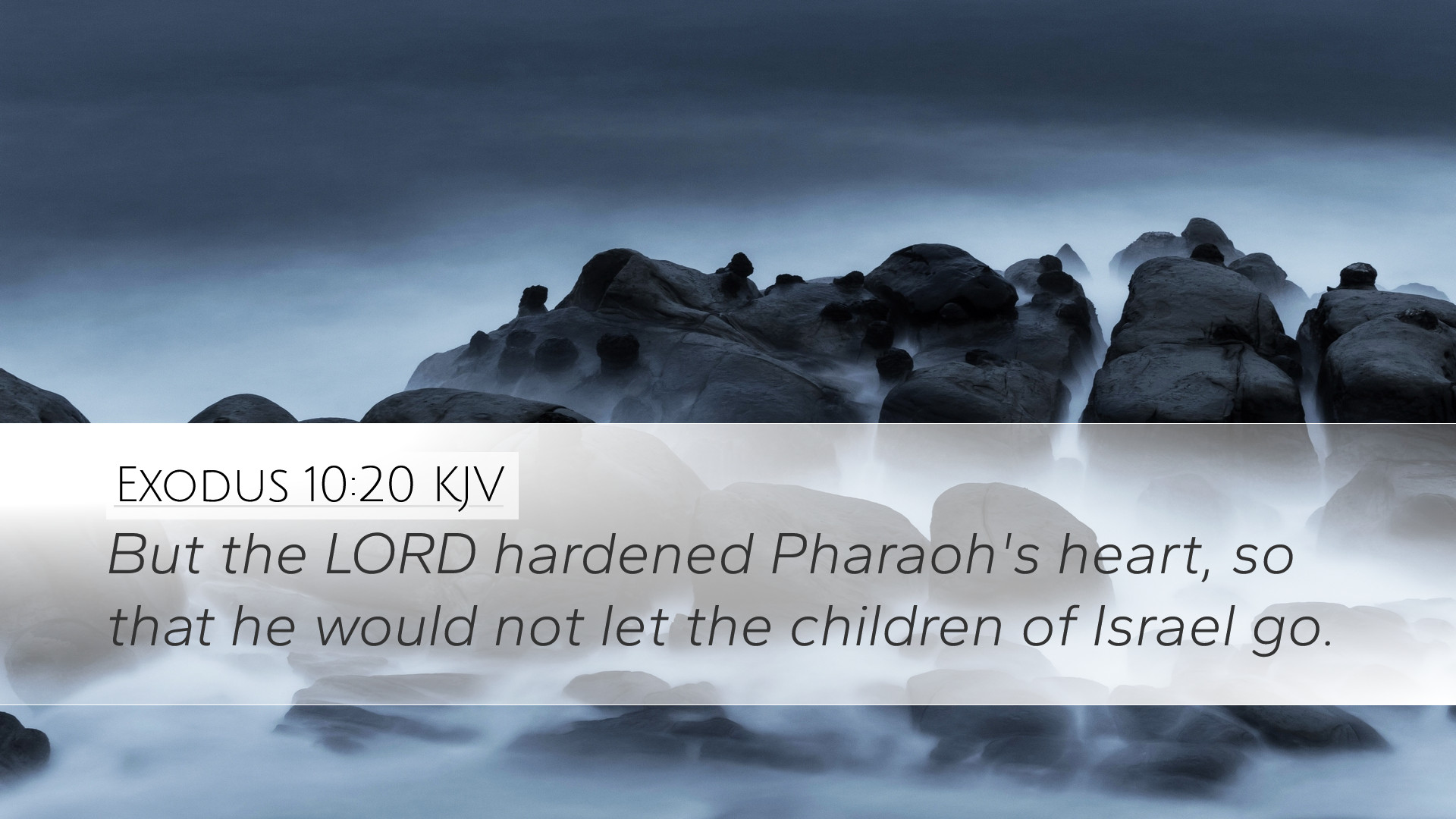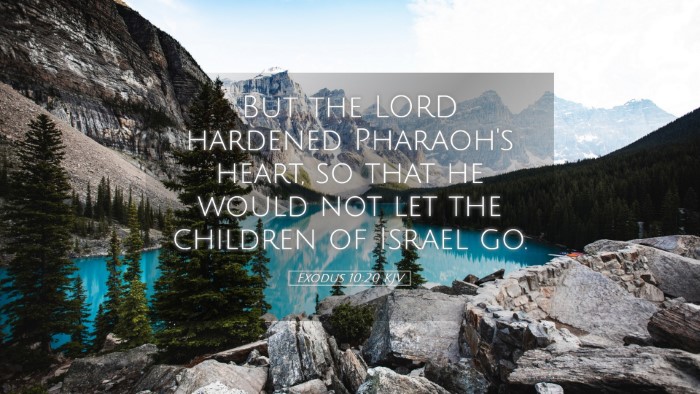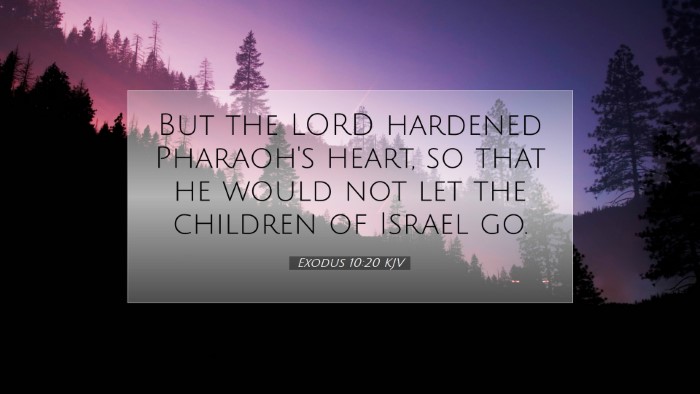Commentary on Exodus 10:20
Verse Text: "But the LORD hardened Pharaoh's heart, so that he would not let the children of Israel go."
Introduction
This verse occurs within the context of the plagues that God inflicted upon Egypt to demonstrate His sovereignty and to compel Pharaoh to release the Israelites from bondage. The hardening of Pharaoh's heart is a recurring theme throughout the book of Exodus, and its implications are profound for our understanding of divine sovereignty, human agency, and the nature of repentance.
The Sovereignty of God
Both Matthew Henry and Albert Barnes emphasize that the hardening of Pharaoh's heart is a demonstration of God's supreme authority over human affairs. While Pharaoh exhibits willfulness and resistance to God's commands, it is ultimately God who allows and even orchestrates this rebellion to fulfill His divine purpose.
-
Divine Purpose: Henry notes that the hardening was part of God's plan to manifest His glory and power through the plagues. By allowing Pharaoh to resist, God would ultimately demonstrate His control over creation and His commitment to His covenantal promises to Israel.
-
Judicial Hardening: Barnes points out that this hardening can be viewed as a form of judicial hardening, where God allows individuals to follow their sinful inclinations as a means of judgment. This thought invokes the complexities of divine justice and mercy.
Human Responsibility
While it is clear that God played a crucial role in hardening Pharaoh’s heart, it is equally important to highlight the personal responsibility of Pharaoh. Adam Clarke argues that Pharaoh, by his own stubborn nature, gave God a reason to harden his heart against the divine will. Clarke emphasizes that this duality presents a deep theological insight into the nature of sin and free will.
-
Pharaoh’s Willfulness: Clarke elaborates on how Pharaoh's own arrogance and pride contributed to his inability to submit to God's commands, indicating a willful choice to oppose the divine will.
-
Repentance and Resistance: From a pastoral perspective, this can serve as a warning to individuals today about the dangers of resisting God's call, leading to a seared conscience and a hardened heart.
Theological Implications
Exodus 10:20 has significant implications for our understanding of the interplay between divine sovereignty and human free will. The commentaries of Henry, Barnes, and Clarke provide insights that can enrich our theological frameworks.
-
God’s Sovereignty in Salvation: The hardening of Pharaoh’s heart symbolizes the broader theological concept that God, in His sovereignty, can and does intervene in human history. This can parallel discussions on how God works in the hearts of men today.
-
Understanding Repentance: The implications of hardening showcase that repentance is a gift from God. When God hardens hearts, He is making a statement about sin's severity and the necessity of divine grace for true repentance.
Historical Context
Understanding the cultural context in which this event transpired is essential to grasping its full meaning. The struggle between Yahweh and Pharaoh is not just about the liberation of Israel but also a confrontation of the gods of Egypt and the claiming of Israel as God’s chosen people.
-
Egyptian Deities: Matthew Henry highlights that the plagues were not only judgments against Egypt but also acts of divine sovereignty over the various gods of Egypt, each plague targeting specific gods.
-
Identity of God’s People: In his commentary, Barnes reflects on how the events serve to solidify the identity of the Israelites as God's chosen people, distinguished from the Egyptians through the signs and miracles performed by God.
Application for Today
This passage invites reflection on several key aspects of faith and conduct for modern believers. For pastors, students, and theologians, there are practical applications to consider in light of this text.
-
Teaching on Obedience: The hardening of Pharaoh’s heart serves as a backdrop for teaching the importance of obedience to God. Pastors can use this to highlight the dangers of persistent rebellion against God's will.
-
Emphasizing Divine Grace: Emphasizing God’s grace in leading His people out of bondage can encourage believers to recognize the transformative power of God in their lives.
-
Encouragement in Trials: The narrative reassures believers that even amidst trials, God’s ultimate purpose and plan for their lives are being worked out. This can provide comfort in difficult times when His will seems contrary to our understanding.
Conclusion
Exodus 10:20 encapsulates significant theological themes regarding the nature of God’s sovereignty, human responsibility, and the dynamics of sin and grace. Drawing on the insights of historic commentaries, we find a rich tapestry that both challenges and reassures believers of God’s unyielding authority over history and His compassionate purpose towards His people.
Ultimately, this passage remains a source of inspiration and reflection for theologians and pastors, prompting deeper exploration of God's work throughout Scripture and in our own lives.


